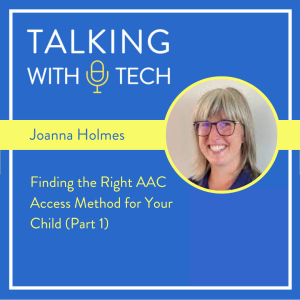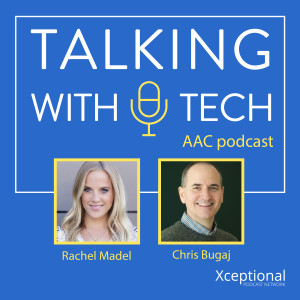
- Podcast Features
-
Monetization
-
Ads Marketplace
Join Ads Marketplace to earn through podcast sponsorships.
-
PodAds
Manage your ads with dynamic ad insertion capability.
-
Apple Podcasts Subscriptions Integration
Monetize with Apple Podcasts Subscriptions via Podbean.
-
Live Streaming
Earn rewards and recurring income from Fan Club membership.
-
Ads Marketplace
- Podbean App
-
Help and Support
-
Help Center
Get the answers and support you need.
-
Podbean Academy
Resources and guides to launch, grow, and monetize podcast.
-
Podbean Blog
Stay updated with the latest podcasting tips and trends.
-
What’s New
Check out our newest and recently released features!
-
Podcasting Smarter
Podcast interviews, best practices, and helpful tips.
-
Help Center
-
Popular Topics
-
How to Start a Podcast
The step-by-step guide to start your own podcast.
-
How to Start a Live Podcast
Create the best live podcast and engage your audience.
-
How to Monetize a Podcast
Tips on making the decision to monetize your podcast.
-
How to Promote Your Podcast
The best ways to get more eyes and ears on your podcast.
-
Podcast Advertising 101
Everything you need to know about podcast advertising.
-
Mobile Podcast Recording Guide
The ultimate guide to recording a podcast on your phone.
-
How to Use Group Recording
Steps to set up and use group recording in the Podbean app.
-
How to Start a Podcast
-
Podcasting
- Podcast Features
-
Monetization
-
Ads Marketplace
Join Ads Marketplace to earn through podcast sponsorships.
-
PodAds
Manage your ads with dynamic ad insertion capability.
-
Apple Podcasts Subscriptions Integration
Monetize with Apple Podcasts Subscriptions via Podbean.
-
Live Streaming
Earn rewards and recurring income from Fan Club membership.
-
Ads Marketplace
- Podbean App
- Advertisers
- Enterprise
- Pricing
-
Resources
-
Help and Support
-
Help Center
Get the answers and support you need.
-
Podbean Academy
Resources and guides to launch, grow, and monetize podcast.
-
Podbean Blog
Stay updated with the latest podcasting tips and trends.
-
What’s New
Check out our newest and recently released features!
-
Podcasting Smarter
Podcast interviews, best practices, and helpful tips.
-
Help Center
-
Popular Topics
-
How to Start a Podcast
The step-by-step guide to start your own podcast.
-
How to Start a Live Podcast
Create the best live podcast and engage your audience.
-
How to Monetize a Podcast
Tips on making the decision to monetize your podcast.
-
How to Promote Your Podcast
The best ways to get more eyes and ears on your podcast.
-
Podcast Advertising 101
Everything you need to know about podcast advertising.
-
Mobile Podcast Recording Guide
The ultimate guide to recording a podcast on your phone.
-
How to Use Group Recording
Steps to set up and use group recording in the Podbean app.
-
How to Start a Podcast
-
Help and Support
- Discover

This week, Chris and Rachel interview Joanna Holmes (@mummyvsaac on Instagram), the parent of an AAC user with Emanuel Syndrome. Emanuel Syndrome is a chromosomal disorder that disrupts normal development and affects many parts of the body, including the speech mechanism. Joanna has lots to share about her experience as the parent of an AAC user, including the journey to find the right access method, and having to work with team members who had limiting beliefs about her daughter.
Before the interview, Rachel and Chris ask the question: how often are we asking “wh-“ questions to students who are still emerging in their ability to answer “wh-“ questions? If they aren’t answering “wh-“ questions yet, then try and find another way to ask the student the same thing e.g., providing choices. For example, instead of asking the student “where do you want to go?”, you can ask them a series of more concrete questions, like, “Do you want to go to the park? Do you want to go to Target?” and so on.
Key ideas this week:
🔑 When writing goals, remember that not all “wh-“ questions are the same level of difficulty. Often, students will have an easier time learning “what”, “where,” “when”, and “who” then they will “why” or “how”. Being specific with the “wh-“ words you want to target in a goal is typically a better practice so everyone will know which ones to teach.
🔑 It doesn’t make sense to gather data for a goal week after week if you are not first teaching the underlying skill the goal is measuring. According to the “80/20” rule, we should be teaching 80% of the time and assessing 20% of the time. For example, if you write a goal that a student will answer “where” questions, we should be teaching how to answer “where” questions 80% of the time and measuring how they are doing on the goal only 20% of the time.
🔑 One idea for teaching how to answer “wh-“ questions is to have a sorting activity where they student places different objects in the correct “wh-“ question folder, depending on if it is a person, place, or thing.
🔑 As a parent, you should feel you’re on good ground if you’re basing your statements on information about AAC from high-quality sources like https://praacticalaac.org. If you’re getting pushback from members of your child’s team and you have good information, you can share that information with them to help them understand your perspective. As a parent, you shouldn’t be afraid to be firm about what the next steps should be when you have good clinical evidence that supports your beliefs.
Visit talkingwithtech.org to access previous episodes, resources, and CEU credits that you can earn for listening to TWT episodes!
Help us develop new content and keep the podcast going strong! Support our podcast at patreon.com/talkingwithtech!
More Episodes
 2023-04-03
2023-04-03
 4.7k
4.7k
 2023-03-15
2023-03-15
 4.6k
4.6k
 2023-03-08
2023-03-08
 4.7k
4.7k
 2023-02-16
2023-02-16
 3.8k
3.8k
 2023-02-03
2023-02-03
 4.5k
4.5k
 2023-01-25
2023-01-25
 5.0k
5.0k
 2023-01-11
2023-01-11
 4.3k
4.3k
 2022-11-09
2022-11-09
 4.8k
4.8k
Create your
podcast in
minutes
- Full-featured podcast site
- Unlimited storage and bandwidth
- Comprehensive podcast stats
- Distribute to Apple Podcasts, Spotify, and more
- Make money with your podcast
It is Free
- Privacy Policy
- Cookie Policy
- Terms of Use
- Consent Preferences
- Copyright © 2015-2025 Podbean.com




